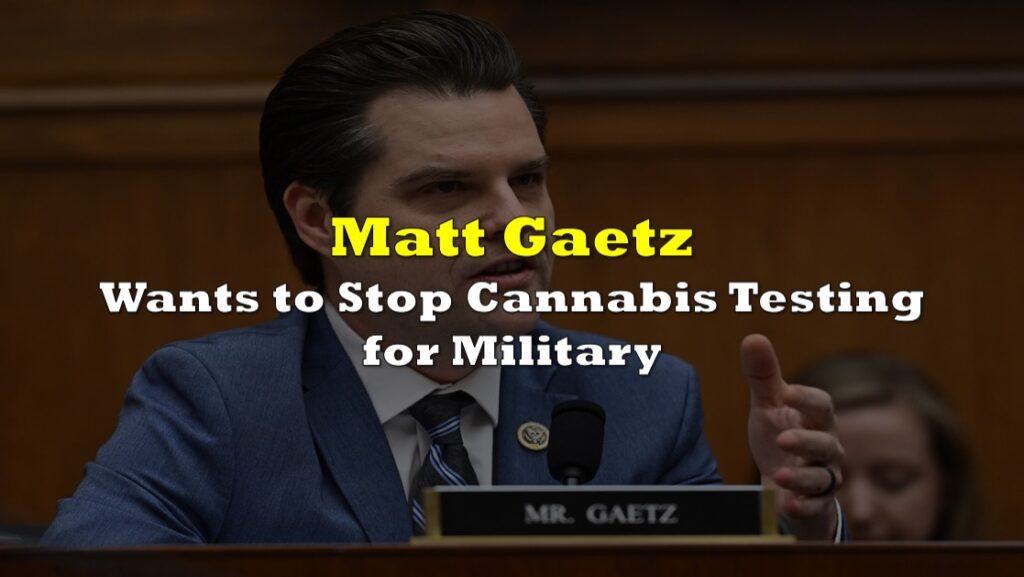The long-awaited House Ethics Committee report on U.S. Representative Matt Gaetz paints a disturbing picture of a man who abused his power, violated state and federal laws, and defiled the trust placed in him by his constituents. Released on December 23, 2024, after years of delays and obstructions, the report delivers a devastating indictment of Gaetz’s behavior, ranging from allegations of sexual exploitation and drug use to obstruction of justice and gross abuse of his office.
Gaetz, who resigned from Congress in November 2024 amid mounting scrutiny and public outcry, was once a rising star in Republican politics. His flamboyant persona, bombastic rhetoric, and loyalty to former and now U.S. President-elect Donald Trump made him a media fixture. However, the findings of the Ethics Committee reveal an individual whose private conduct was riddled with immorality and illegality, contradicting the image he projected to his base.
The Ethics Committee’s investigation uncovered substantial evidence that Gaetz engaged in relationships with multiple women who were paid for sex, including at least one who was 17 years old at the time. The committee determined that from 2017 to 2020, Gaetz funneled money to these women through digital payment platforms like Venmo and PayPal. Payments were often thinly veiled, labeled with euphemistic terms such as “groceries” or “being awesome,” obscuring their true purpose.
The financial records, combined with witness testimony, leave little doubt that Gaetz was involved in a systematic pattern of sexual misconduct that flagrantly violated both Florida state laws and federal statutes on prostitution and statutory rape.

One particularly egregious instance involved Gaetz engaging in sexual activity with a minor in 2017. The report acknowledges that the Department of Justice declined to press charges for sex trafficking, citing insufficient evidence of coercion or fraud. However, the Ethics Committee did not hold back in its condemnation, stating unequivocally that Gaetz’s actions constituted a serious breach of the public trust and were “discreditable to the House.”
Gaetz’s behavior was not limited to these direct violations of law. The report also revealed his willingness to exploit his official position for personal gain. In one instance, he directed his Chief of Staff to falsely represent a woman with whom he had a personal relationship as a constituent in need of a passport. This abuse of congressional resources underscores the sense of entitlement and impunity that characterized his actions.
One thing I’m learning from reading this report is that apparently it doesn’t take much money to be a sugar daddy? Lol. Like I sort of assumed these relationships involved quite a lot of money but all the Venmos here are for $400 and stuff. https://t.co/aYickY3uij
— Ben Dreyfuss (@bendreyfuss) December 23, 2024
The investigation also shed light on Gaetz’s indulgence in illicit drug use, with witnesses reporting frequent cocaine and ecstasy use during parties and private gatherings. These events often involved the same women to whom Gaetz made payments, blurring the lines between personal debauchery and potential criminal conduct. The report documents these activities extensively, portraying a man who lived with reckless disregard for the law and his responsibilities as a public servant.
The report also details a lavish 2018 trip to the Bahamas, funded by a Florida entrepreneur and medical marijuana lobbyist. This trip, during which Gaetz was accompanied by women later identified as receiving payments for sex, represents a clear violation of House gift rules. The committee found that Gaetz accepted travel, lodging, and other benefits far exceeding permissible amounts, further underscoring his willingness to ignore ethical guidelines for personal pleasure.
Not enough talk about how Matt Gaetz was making them fly Spirit Airlines pic.twitter.com/nqstSfZoTu
— Monica Venzke (@monicavenzke) December 23, 2024
Throughout the investigation, Gaetz exhibited a brazen defiance of the committee’s authority. He refused to cooperate with subpoenas, failed to appear for depositions, and dismissed the inquiry as a partisan attack. His obstruction was compounded by the Department of Justice’s reluctance to provide key evidence, citing internal policies and prioritizing the protection of uncharged individuals. The committee noted that these delays, along with Gaetz’s noncompliance, severely hampered their ability to act promptly.
Gaetz’s correspondence with the committee was emblematic of his broader attitude. In multiple letters, he accused the Ethics Committee of conducting a politically motivated “witch hunt” and dismissed the allegations against him as baseless rumors. In one particularly inflammatory response, he referred to the investigation as “an affront to ethics itself” and claimed that the committee was weaponized to target him for his political beliefs. These statements, which sought to frame him as a victim, failed to address the core allegations and served only to highlight his unwillingness to take accountability.
Gaetz’s actions were not conducted in isolation; they were part of a broader culture of impunity and excess. His ties to Joel Greenberg, a disgraced Florida tax collector who pleaded guilty to sex trafficking and other crimes, provide crucial context for understanding the mechanisms that enabled his behavior. Financial records show a pattern of transactions between the two, with Greenberg often acting as a middleman in facilitating payments to women.

Even as the investigation unfolded, Gaetz continued to project an image of defiance and loyalty to Trumpist politics. The incoming administration even touted him for consideration in the next Trump cabinet as Attorney General. But he eventually withdrew his name, stating that “it is clear that my confirmation was unfairly becoming a distraction to the critical work of the Trump/Vance Transition.”
The release of the Ethics Committee report is a rare move, given that jurisdiction over Gaetz was technically lost upon his resignation. However, the committee argued that the gravity of the findings warranted public disclosure. Chairman Michael Guest noted that releasing the report was essential to maintaining the integrity of the House, stating that “when faced with overwhelming evidence of misconduct, silence is not an option.”
The report details a litany of unethical and illegal behavior, from exploiting women to obstructing justice, and serves as a chilling reminder of the dangers posed by unchecked power. Despite Gaetz’s attempts to frame the investigation as a partisan attack, the evidence laid out in the report leaves little doubt about his culpability.
Information for this briefing was found via the sources mentioned. The author has no securities or affiliations related to this organization. Not a recommendation to buy or sell. Always do additional research and consult a professional before purchasing a security. The author holds no licenses.









